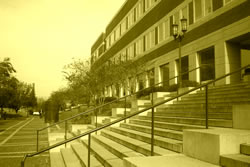|
|||||||
|
|
|
Home |

|
September 5th: The Time Machine (Part 2)Announcements The Time Machine and "The Star" by H. G. Wells We might have to back up to last class, but we have plenty to cover.
The Boer War and Technology
In the first decade of the 20th Century, the focus on science and technology moved from being dominated by commercial concerns (light bulbs, telegraphs, automobiles--all in the nascent stage) to being dominated by military interests. Of course, there's no exact date for when this happened, but cultural observers recognized it. Many technologies had "tactical and practical uses." Guglielmo Marconi pitched his wireless invention as having both commercial and military potential.
In fact, his wireless was used in a battle during the Boer War (1880-1881 and 1899-1902). Marconi, as did other inventors, used to discuss their inventions in places like the Royal Institution and the Royal Society of Arts, Britain. These venues were places journalists, the public, and other scientists/engineers went to hear about the latest and greatest technologies. Because these presentations were about newly created technologies, the experts had to convince the audience of their merit or potential. These presentations were also places for inventors to explain away deficiencies that others might have heard about.
In the 1900 presentation to the Royal Institution of Great Britain, Marconi responds to a situation where his early wireless invention didn't work appropriately. Much like Apple not wanting 3rd parties to writing software without being authorized, Marconi only wanted his approved devices (and, eventually, telegraphers) to be used; otherwise, he couldn't ensure they would work. He blames human error when explaining why his system was defective during the Boer War in South Africa. Some assistants went to help, but there were no proper "poles, kites, or balloons'' (Marconi 1900, p. 295). The crew had to use inferior makeshift kites that weren't as effective (Marconi 1900, p. 295). Marconi made it clear that the wireless was still a good system but its assumed "partial failure was due to the lack of proper preparation on the part of the local military authorities, and has no bearing on the practicability and utility of the system when carried out under normal conditions." (Marconi 1900, p. 295).
The problems above could have been harmful to Marconi's reputation (ethos) and, therefore, harmful to the wireless system. Imagine the public hearing that Marconi's assistants using any apparatus failed to establish communication. Regardless of inferior equipment, observers could still perceive the results as a system failure, and that perception would be hard to overcome. Marconi (1900) himself stated "that if I had been on the spot myself I should have refused to open any station until the officers had provided the means for elevating the wire, which, as you know, is essential to success'' (Marconi 1900, p. 296). Marconi creates the idea of a flawless invention to convince his audience of its potential existence. Of course, having a viable military application would bolster Marconi's economic potential, so he offers with confidence "that before the campaign is ended wireless telegraphy will have proved its utility in actual warfare'' (1900, p. 296). Marconi even foreshadows the wireless's military usefulness when he invites the audience to "agree with me that it is much to be regretted that the system could not be got into these towns prior to the commencement of hostilities'' (1900, p. 296). Citations Marconi, G. (1900, Feb 2). Wireless telegraphy. Smithsonian Annual Report,
1901, 287-296. "Filby, an argumentative person with red hair..." In the novella, Filby is just one of the observers, but in both versions of the movie, he's a friend and mentor. The novella is mainly the narrator's retelling of the Time Traveller's story. The novella and the 1960's film show science being discussed. Although time travel is just theoretical (is it?), the various men in the room contemplate the possibility of actually traveling through time. This is an important allegory to how science gets verified: new ideas must be vetted (tested and approved) by an established group--usually a discourse community. Establishing science seems to be the most important part of The 1960 film, but all texts--novella, 1960 film, and 2004 film--try to show the Time Traveller's motivation. His motivations are slightly different in each text, but each Time Traveller wants to transcend his place in time. Questions to consider for the film clips:
"The Star" (1897) I'm sure we're going to run out of time (need a Time Machine, I guess) to talk about H. G. Wells "The Star," but let’s at least consider the major themes that come from the short story. The Anthology editors claim "The Star" is a “vision of humanity's essential helplessness in the face of a catastrophe from space" (p. 40). We have to ask, why is this such a common theme in Sci Fi? Other topics:
Where else have we heard that all the world needs is a "clean slate"? Next Week For Tuesday (9/10), have read Forster, E. M. "The Machine Stops" (1909), Lafferty, R. A. "Slow Tuesday Night" (1965), Ellison, Harlan. "'Repent, Harlequin!' Said the Ticktockman" (1965)--all in the Anthology. Don't foget, your first test is on Thursday (9/12), and you won't come to class to take it because it'll be on Moodle2. Make sure you have reliable access to a computer with an Internet connection. If there are non-Moddle2 related issues, there won't be any extensions: You'll have 75 minutes of your choice (from 8am-midnight) to do the test.
... |
||||||||||||||||||||||||||||||||||||||||||||
|
|
|||||||||||||||||||||||||||||||||||||||||||||
| © UNC Charlotte Copyright | Privacy Statement | Page Maintained By: Aaron A. Toscano |
